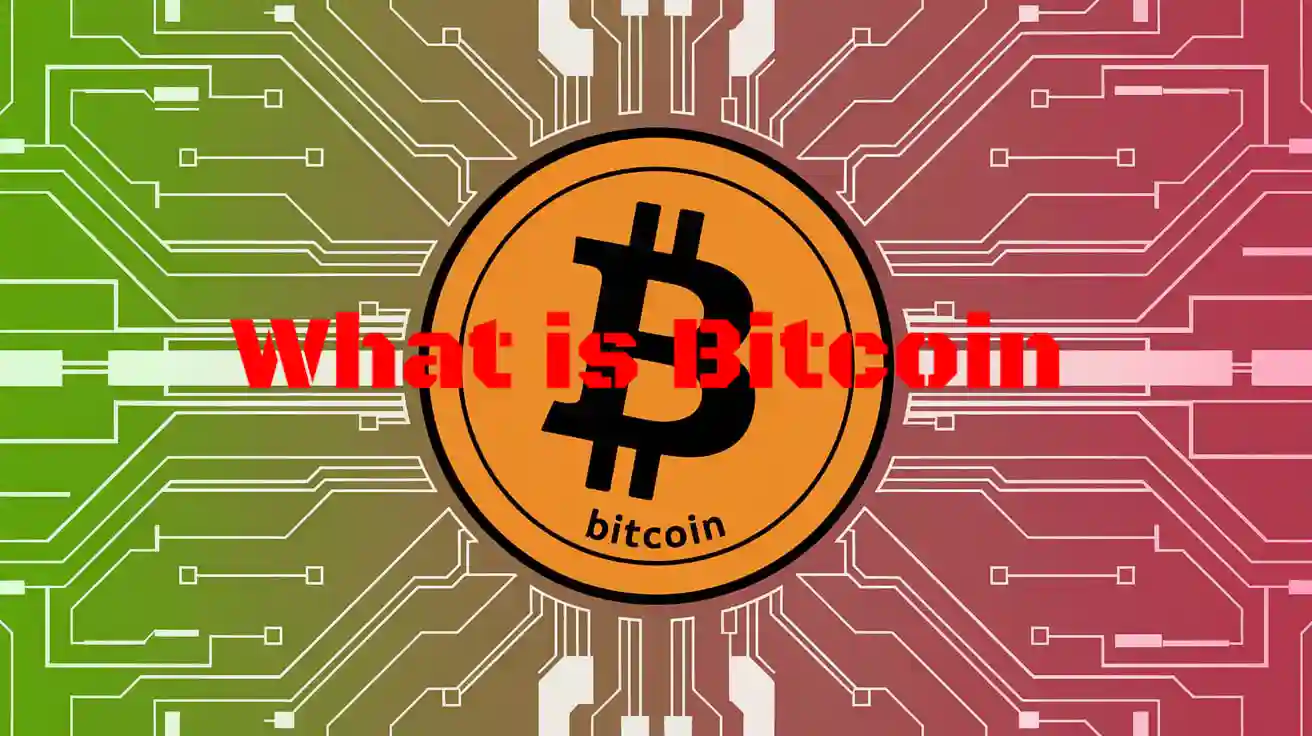Bitcoin, introduced in 2009, revolutionized the financial world as the first peer-to-peer digital currency. It operates on a decentralized blockchain network that eliminates the need for intermediaries like banks. But what exactly is Bitcoin, how does it function, and why has it gained such massive popularity?
What is Bitcoin?
Bitcoin (BTC) is a digital currency that allows users to send and receive payments without relying on a central authority. Unlike traditional money, Bitcoin exists purely in digital form and is recorded on a public, decentralized ledger known as the blockchain.
A key feature of Bitcoin is its immutability—once a transaction is recorded on the blockchain, it cannot be altered. This ensures security and transparency within the network. Additionally, Bitcoin transactions are borderless, meaning anyone with internet access can participate in the network.
Did You Know?
The first-ever Bitcoin purchase was for two pizzas in May 2010. The buyer spent 10,000 BTC, an amount that would be worth millions of dollars today. This day is now celebrated as “Bitcoin Pizza Day.”
The Mysterious Creator: Who Invented Bitcoin?
Bitcoin was created by an individual or group of individuals using the pseudonym Satoshi Nakamoto. Nakamoto first introduced Bitcoin in a white paper titled “Bitcoin: A Peer-to-Peer Electronic Cash System” in October 2008. This document outlined the core principles of Bitcoin, including its decentralized nature and ability to function as a digital currency without government control.
In January 2009, Nakamoto mined the first Bitcoin block, known as the Genesis Block. Over time, Bitcoin gained traction, with early adopters like computer scientist Hal Finney becoming involved. However, Nakamoto mysteriously disappeared from public discussions in 2011, leaving the project in the hands of developers like Gavin Andresen.
What Makes Bitcoin Special?
Bitcoin introduced several groundbreaking innovations that set it apart from traditional currencies:
- Decentralization: No single entity or government controls Bitcoin, making it resistant to censorship and interference.
- Peer-to-Peer Transactions: Bitcoin users can transact directly without a bank or payment processor.
- Limited Supply: Unlike fiat currencies, Bitcoin has a maximum supply of 21 million coins, ensuring scarcity and potential value appreciation.
- Transparency and Security: All transactions are recorded on a public ledger, reducing the risk of fraud and corruption.
- Prevention of Double-Spending: The Bitcoin network ensures that a single Bitcoin cannot be spent more than once, a problem that plagued earlier digital currencies.
Did You Know?
It is estimated that around 25% of all Bitcoins have been lost due to forgotten passwords, misplaced keys, or discarded storage devices.
How is Bitcoin Created?
Bitcoin is generated through a process called mining. This involves powerful computers solving complex mathematical puzzles to validate transactions and add them to the blockchain. In return, miners are rewarded with newly minted Bitcoins.
Approximately every four years, the Bitcoin mining reward is cut in half through an event known as halving. This reduces the rate of new Bitcoin issuance, making the cryptocurrency increasingly scarce. The last Bitcoin is expected to be mined around the year 2140.
How to Acquire Bitcoin
There are two primary ways to obtain Bitcoin:
- Buying Bitcoin – You can purchase Bitcoin through cryptocurrency exchanges such as Coinbase, Binance, or Kraken using traditional money (fiat currency).
- Mining Bitcoin – If you have the necessary computational power, you can participate in mining, although this requires significant investment in specialized hardware and electricity.
Uses of Bitcoin
Bitcoin’s utility extends beyond simple transactions. Here are some ways it is being used today:
- Purchases: Many businesses, including online retailers and service providers, accept Bitcoin as payment.
- Investments: Bitcoin is often seen as “digital gold” due to its limited supply and store-of-value characteristics.
- Gambling: Several online casinos and betting platforms allow Bitcoin deposits and withdrawals.
- Digital Rights Management: Artists and musicians use blockchain technology to control access to their intellectual property.
- Identity Protection: Bitcoin’s cryptographic nature enables users to verify their identities without revealing sensitive information.
Did You Know?
In 2013, the FBI seized 144,000 Bitcoins from the Silk Road marketplace, later auctioning them for $48 million.
What is a Bitcoin Wallet?
A Bitcoin wallet is a digital tool that allows users to store and manage their Bitcoin holdings. Wallets contain private keys, which must be kept secure to prevent unauthorized access.
There are several types of Bitcoin wallets:
- Hot Wallets: Connected to the internet, these are more convenient but also more vulnerable to hacks.
- Cold Wallets: Offline wallets, such as hardware wallets or paper wallets, offer enhanced security by keeping private keys off the internet.
To conduct transactions, users need both:
- Public Key: Similar to an email address, this is shared with others to receive Bitcoin.
- Private Key: A secret code used to authorize Bitcoin transactions. If lost, access to Bitcoin is permanently gone.
Did You Know?
Bitcoin mining consumes a significant amount of energy. Each Bitcoin transaction uses nearly 4,000 times the electricity required for a typical credit card transaction.
The Future of Bitcoin
The future of Bitcoin remains uncertain yet promising. While its value fluctuates, Bitcoin continues to gain mainstream adoption. Governments, businesses, and financial institutions are exploring ways to integrate Bitcoin into the global economy.
Key debates surrounding Bitcoin include:
- Is Bitcoin a currency or a store of value? Some believe it will eventually replace traditional money, while others see it as a hedge against inflation.
- Regulation: Governments are considering policies to regulate Bitcoin, which could impact its use and adoption.
- Scalability and Technology: Innovations like the Lightning Network aim to improve transaction speeds and reduce fees.
As more people recognize Bitcoin’s potential, its role in the financial landscape is likely to grow, whether as a digital currency, an investment asset, or a groundbreaking technology.
Bitcoin’s journey from an experimental digital cash system to a global financial phenomenon is nothing short of extraordinary. Whether you’re a curious observer or a seasoned investor, understanding Bitcoin is essential in today’s digital age. While its future remains unpredictable, one thing is certain: Bitcoin has forever changed how we think about money and finance.
resources:




